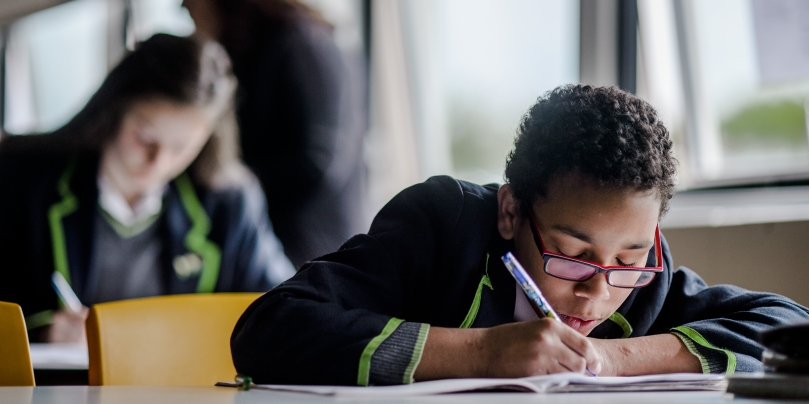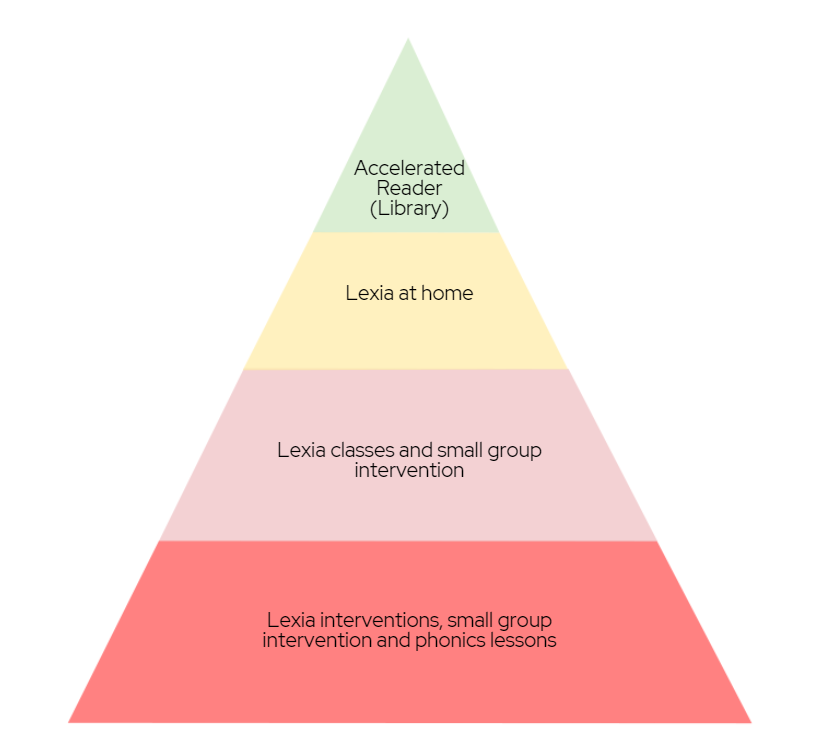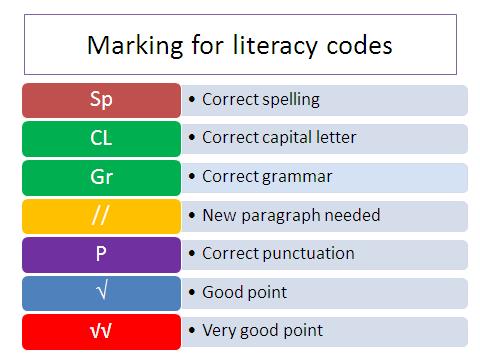
Literacy at Haggerston
Helping maximise their literacy skills is integral to what we do at Haggerston. As part of our Literacy Policy, we measure students’ reading ages at regular intervals so that all staff can support, scaffold, and build in challenge relevant to individual literacy skills. We share this data with all staff on Classcharts. We provide CPD on vocabulary; reading ages and reading skills; extended writing; and embedding disciplinary literacy so that all teachers are equipped to deliver research-led best practice. Our thriving school library encourages students to get involved in a range of activities that promote literacy skills and teach valuable lifelong learning habits. You can find out more on our dedicated library webpages.
Students following the Haggerston Pathway receive an additional 2-3 hours of literacy teaching. Our Literacy curriculum provides explicit and robust teaching of core principles of grammar, spelling, and punctuation; develops students’ ability to comprehend and construct different types of texts; and provides opportunities for the development of oracy. The Literacy curriculum has mastery at its heart and seeks to minimise gaps between student groups to ensure all are well equipped for their next stage. At Key Stage 4, students on the Haggerston Pathway also have the opportunity to sit an additional qualification in Functional Skills English.
We recognise that all students will require different levels of support. We participate in a range of interactive programmes, including Lexia and Accelerated Reader, to provide this support. We also have a dedicated specialist team of Teaching Assistants who deliver expert interventions to small groups. A simplified view of our layers of support is shown below:

Reading for Pleasure
All students in Years 7 and 8 are enrolled in the Accelerated Reader Programme. Accelerated Reader is a platform that encourages regular quizzing on what students have been reading. It measures comprehension and vocabulary, plus provides opportunities for rewards based on student engagement. To find out how to take a quiz on Accelerated Reader, watch this short video: How to take a quiz.
The library regularly runs competitions, book fairs, book swaps and thematic events such as LGBT+ Month and Black History Month. There is a team of student librarians that support the library team. They also publish a half-termly newsletter which can be found on their webpage.
In Years 7 and 8, students also spend part of their extended tutor time each week reading high quality, challenging books with their tutor. Previous titles have included A Little Piece of Ground and the autobiography of Malala.
Interventions in school and Lexia
In school, we have a Literacy Coordinator and Higher Level Teaching Assistant for Literacy who oversee literacy provision and specialist interventions. Some of the programmes used in school to support this include:
- Lexia
- Precision teaching
- EAL morning classes
To find out more about Lexia, please view this parents’ guide: video. You can also email us at Haggerston and ask to be put in touch with the Literacy Coordinator.
Ways to help at home
- Encourage twenty minutes, or ten pages worth, of independent reading at home every day.
- Read with your child and make sure they see you reading too.
- Ask your child questions about what they’ve been reading, such as what they notice about the characters or what they are enjoying about the plot. Find more ideas on this printable bookmark.
- Good oracy is key to strong literacy: talk to your child about the things they have been learning and about the world around them.
- Make sure your child makes the most of our thriving school library: check they have a current reading book and encourage them to take part in the range of activities and competitions. For reading lists, visit our Library Recommendations tab.
- If your child is using Lexia, make sure they spend 60 minutes over the week working on it. Find more information here.
- Ask your child to read their work to you and help them spot or correct mistakes.
- If you have concerns about the literacy needs of your child, please contact our Literacy Lead Practitioner, Nancy Matthews via email.
When marking students’ work, teachers will use the following codes to improve literacy.







